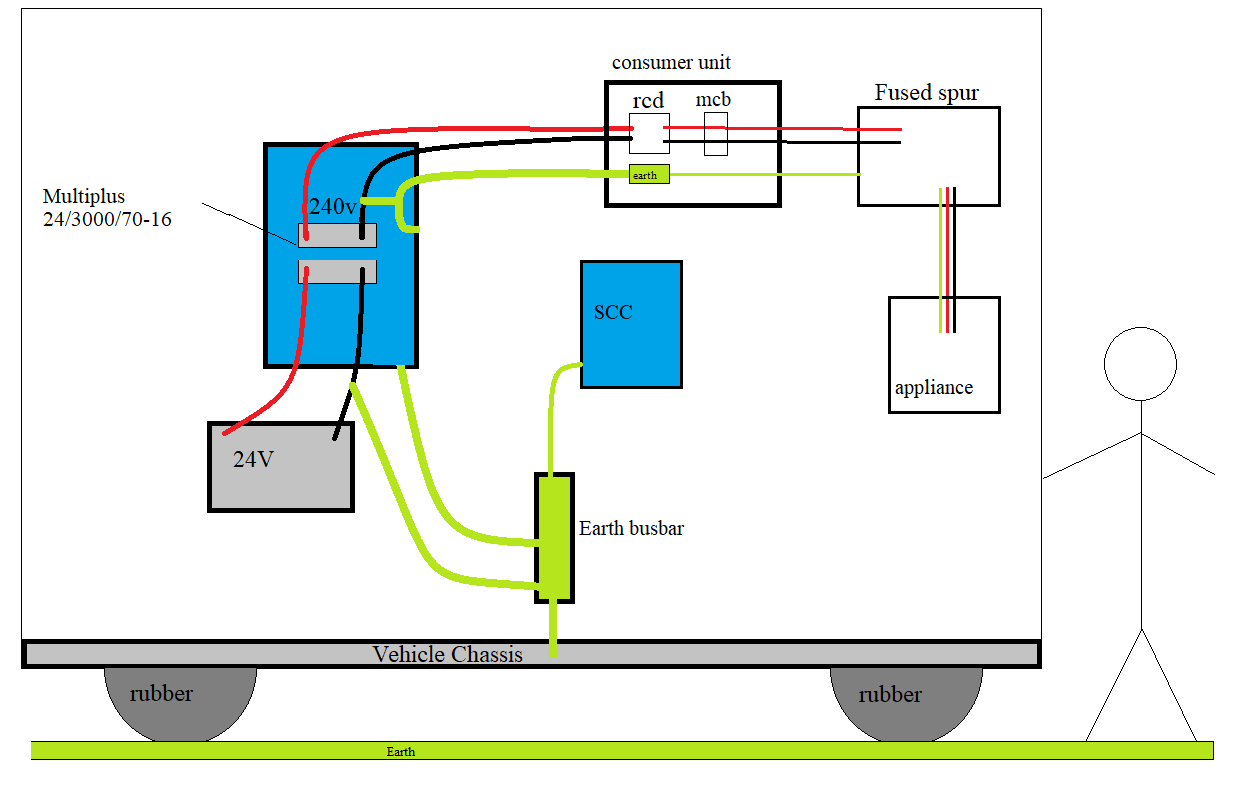Your electrician friend is wrong, you are good, not to worry. Am I qualified, sure, master electrician and instructed over 500 electrical classes, many on grounding.
Your drawing is OK but I am not sure what some of the equipment is. Do you have a shore power cord and where does it connect?
Grounding and bonding is confusing to most electricians, most seem to attribute some magical property to a ground rod. I have RVs for 25 years, camping 199 nights in my last RV, and not once, ever have I seen a ground rod at motor home. My new Class B has onboard generator, its a Cummins, and their excellent instructions don't reference a ground rod.
Since you are not asking for help or DIY info, I'll leave this post open, but you need to ask your electrician friend why he "insists" you need a ground rod. Ask him, is it for grounding or bonding? Is it to open the shore power circuit breaker if there is a short circuit to to RV chassis?
Plus then you drive a ground rod, you would need to call locates and wait two days....otherwise you would have to go to the RV park owner and explain why you drove a ground rod through his water line.
View attachment 2556898


